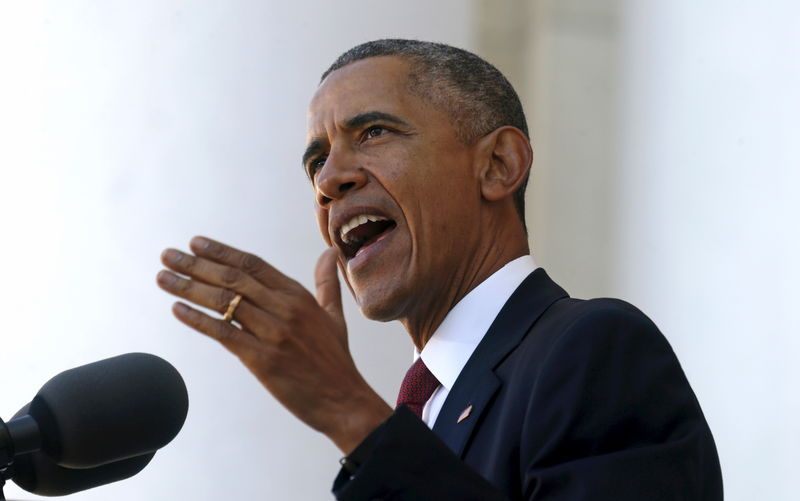WASHINGTON (Reuters) - President Barack Obama on Friday urged the U.S. Congress to quickly approve a 12-nation Pacific trade pact early in 2016, telling reporters the Trans-Pacific Partnership (TPP) was essential to the American economy as well as national security.
Obama last week gave Congress 90 days' notice that he would sign the TPP deal, which seeks to remove trade barriers and set common standards in 40 percent of the world economy.
Congress must approve the pact before it can take effect, but U.S. lawmakers have been lukewarm toward the deal.
"We strongly believe that on a bipartisan basis, we should get this done," Obama told reporters after meeting with a group of senior diplomats and defense experts.
"As soon as the 90-day review period is completed and the new session of Congress begins after the Christmas break, I am hoping that leaders in both parties and both chambers move promptly to get it done," Obama said.
Obama is due to embark on Saturday on a nine-day trip that will take him to Asia where the TPP will be a focus. Obama will also attend the Asia-Pacific Economic Cooperation (APEC) summit in Manila on Nov. 18-19.
He gathered a who's who of Republican and Democratic national security luminaries at the White House on Friday to bolster his case, including former secretaries of state Henry Kissinger, James Baker, Madeleine Albright and Colin Powell; former defense secretary Bill Cohen; and retired military brass Mike Mullen and James Jones.
They were in agreement that a failed deal would leave a "void" that would be filled by China and other competitors.
"They will make the rules, and those rules will not be to our advantage," Obama said.
Missing from the group was Hillary Clinton, Obama's former secretary of state, who is the front-runner in the Democratic race for the November 2016 presidential election.
Clinton has said she opposes the TPP. The deal has also been criticized by Donald Trump and others in the Republican presidential primary race.

The White House said the meeting was "not in any way" meant to contrast Clinton's opposition to the TPP with the support seen from other former top diplomats.